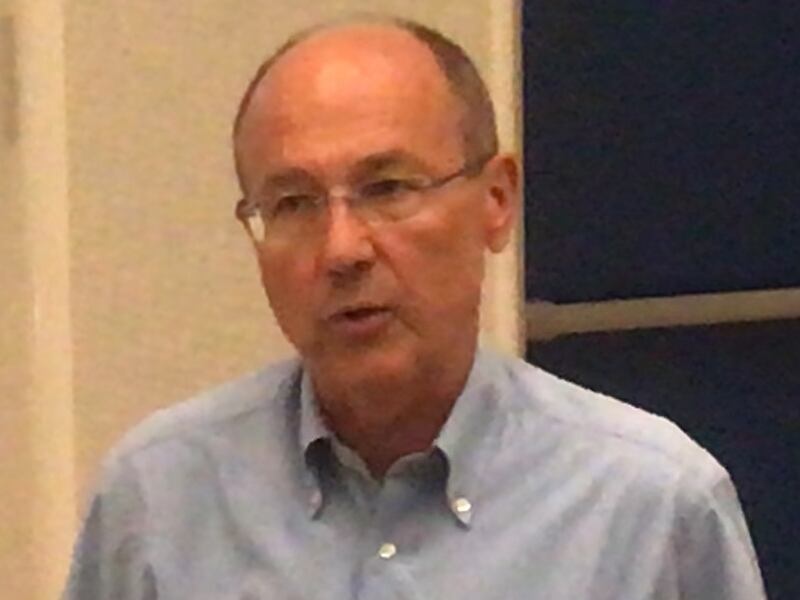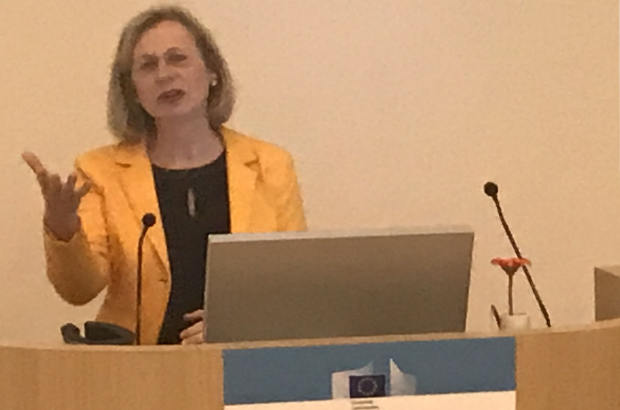The JRC was tasked with developing a scientific basis for understanding the issue of dual quality foods in March, when the Commission established the Knowledge Centre for Food Fraud and Quality. The centre’s mandate included the operation of an early warning and information system for food fraud through media monitoring.
The JRC is also tasked with developing a methodology to “frame the dimensions of the [dual quality food] problem”, Franz Ulberth, unit head of fraud detection and prevention, explained.

Speaking at the JRC research facility in Geel yesterday (6 June), Ulberth said the JRC is now collecting samples of branded food products from across the bloc. This will enable researchers to assess whether the food industry is selling sub-standard products in some European Member States.
This EU-wide testing campaign will be used to generate a “map” of food quality, which is expected to be completed by the end of the year.
‘This is pretty subjective’
Ulberth stressed the issue of dual quality food is not a question of fraud, where a product is deliberately mislabelled to mislead the consumer. It is about food quality, which is more challenging to measure.
“Quality of food is difficult to explain and understand,” he noted. “You can approach the notion of quality from two different angles. The first is very traditional and is [the one often taken] by food companies… They have specifications and when these are met the quality target is reached. The consumer approaches quality from a different angle… It is more about the perception, the expectation. The better the expectation is met, the more satisfaction is reached. This is pretty subjective.”
Elke Anklam, director of health, consumers and reference materials, told FoodNavigator that a greater understanding of what quality means is central to the investigation. “A definition of quality is the crucial point. What is food quality? It is not a consumer health issue, it is not a fraud issue, it is a quality issue. We need to have a good definition of quality.”
The food industry has consistently denied accusations that branded manufacturers sell worse quality products in certain member states, stressing that recipe changes frequently reflect local taste preferences.
Ulnerth acknowledged that such factors may have a bearing on local or regional perceptions of quality. “Perception is influenced by nationality, by region,” he noted.
In order to account for differing consumer perceptions, the JRC intends to use sensory panel testing and is considering working with behavioural psychologists, Anklam revealed.
Ulberth also highlighted other “justifiable or legitimate reasons” why there may be recipe variations, such as a desire to use local ingredients. However, he warned that this “should not be used to the detriment of the consumer”.
‘Very much a political question’

The issue of so-called dual quality foods was drawn into the lime light after politicians from some central and eastern European countries, such as Hungary, Slovakia and the Czech Republic, seized on it to highlight disparity between standards in eastern and western Europe.
This prompted EC president Jean-Claude Juncker to stress that “EU law outlaws such practices” in his State of the Union speech in September last year. Juncker stressed that, if such practices are found to exist, the EC will take the necessary steps to stamp them out.
In this politically charged environment, it is vital to develop a fact-based methodology for assessing food quality, Anklam said.
“It is very much a political question,” she observed. “In the member states this is political and it has to be solved. It is our highest priority issue.”
Ulberth stressed the need to avoid framing the topic as an “east versus west” debate. For this reason, the JRC aims to collect comparable samples from across all the member states. “We want a good geographical representation. We want to avoid this comparison of east versus west… We also need to see if these differences occur north to south.”
